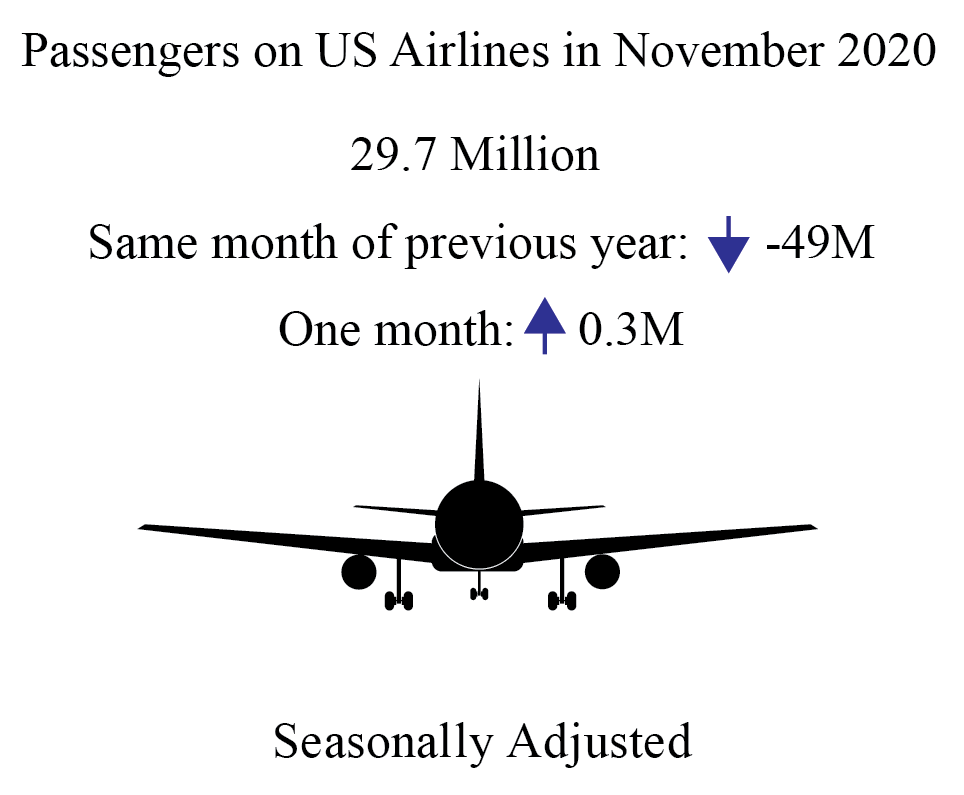November 2020 U.S. Airline Traffic Data


Wednesday, December 23, 2020 – The 26th edition of the Transportation Statistics Annual Report (TSAR), a congressionally-mandated report, is now available from the Bureau of Transportation Statistics (BTS). TSAR 2020 presents key transportation indicators along with an overview of the transportation system. It also includes data and statistics on passenger travel, freight movement, transportation and the economy, system reliability, safety, and energy use and environmental impacts of transportation.
WASHINGTON – The U.S. Department of Transportation today released its December 2020 Air Travel Consumer Report (ATCR) on reporting marketing and operating air carrier data compiled for the month of October 2020. The full consumer report and other aviation consumer matters of interest to the public can be found at http://www.transportation.gov/airconsumer.